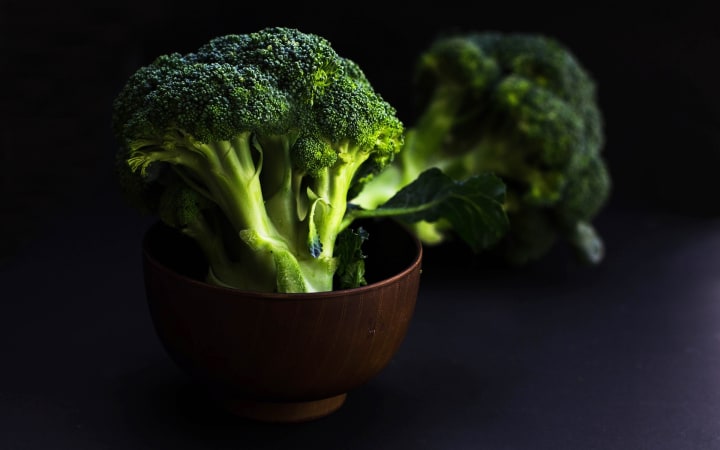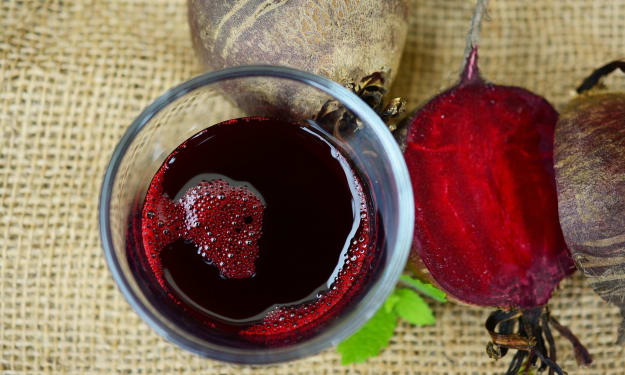
Amazing Health Benefits of Broccoli - How does broccoli benefit our health?
Eating fruits and vegetables has been associated with a healthy lifestyle, increased life expectancy, and decreased risk of many chronic disorders and diseases.
Broccoli is highly recommended for athletes and people who want to lose weight, as it is a low-calorie, high-fiber food. According to the United States Department of Agriculture, 100 grams of broccoli contains only 34 calories. Broccoli can provide us with protein, minerals and iron and is an excellent source of vitamins (vitamin K and vitamin C).
According to the USDA, 100 grams of raw broccoli contains:
Water: 89.3 g
Energy: 34 kcal
Protein: 2.82 grams
Total fat: 0.37 grams
Folic acid (total): 63 mcg
Carbohydrates 6.64 grams
Sugars: 1.7 grams
Fiber: 2.6 g
Calcium: 47 mg
Potassium: 316 mg
Phosphorus: 66 mg
Magnesium: 21 mg
Iron: 0.73 mg
Sodium: 33 mg
Zinc: 0.41 mg
Vitamin A (RAE): 31 mcg
Vitamin B6: 0.175 mg
Vitamin E (alpha-tocopherol): 0.78 mg
Vitamin Potassium: 101.6 micrograms
Vitamin C: 89.2 mg
According to studies, regular consumption of broccoli may:
It has anti-cancer properties
Cruciferous vegetables contain many antioxidants and anti-inflammatory substances that can enhance the protection of the human body from cancer. Specifically, studies have been done on sulforaphane regarding its ability to inhibit the enzyme histone deacetylase (HDAC), which is involved in the formation of cancer cells. Broccoli is a rich source of sulforaphane. Moreover, folic acid appears to have a protective effect against breast cancer and other types of cancer.
Improve heart health
According to a University of Kentucky study, a diet high in fiber can reduce the risk of cardiovascular disease, such as stroke. Fiber seems to lower cholesterol levels and blood pressure. Raw broccoli is rich in fiber, while broccoli is high in potassium, which helps control blood pressure.
Strengthen the bones
Broccoli contains two major components that help form a healthy skeletal system. They are vitamin K and calcium. These compounds contribute to osteoporosis and prevent other bone diseases. One cup (100 g) of broccoli provides more than the daily requirement of vitamin K for a healthy adult.
Improve digestion
Broccoli contains a high percentage of fiber. Eating broccoli can enhance bowel function, which leads to a healthy digestive system. Also, it can help us get rid of any harmful toxins.
Improve skin health
Broccoli is a great source of vitamins C, E, and A, which play an important role in skin health. Vitamin C plays a vital role in collagen formation and helps skin look healthier and younger.
However, like any other food, broccoli should only be eaten in reasonable amounts and as part of a balanced diet.

Warnings and risks of eating broccoli
Despite the many benefits of broccoli, there are some risks and caveats related to eating it. We mention the most important of them in the following:
The fiber, potassium, and antioxidants in broccoli help prevent cardiovascular diseases.
In a 2018 study, it was found that elderly women who ate diets rich in cruciferous vegetables had a lower risk of developing atherosclerosis.
Hence, we may find the relationship between eating broccoli and reducing the risk of cardiovascular disease, as it was found that sulforaphane may activate the protein (Nrf2), which is an inactive protective protein found in parts of the arteries that are subject to blockage.
In addition, broccoli is a source of vitamin K, coenzyme Q10, potassium and dietary fiber that may contribute to the health of a patient with high blood pressure.
Eating it frequently causes some side effects, including: bloating, abdominal pain, the appearance of a skin rash, and the emergence of some allergic reactions.
Vitamin K, found in broccoli in abundance, inhibits the action of anticoagulant medications, so you should be careful if you are taking any of these medications and consult your doctor.
Eating cruciferous vegetables, such as broccoli, can exacerbate hypothyroidism
About the Creator
Enjoyed the story? Support the Creator.
Subscribe for free to receive all their stories in your feed. You could also pledge your support or give them a one-off tip, letting them know you appreciate their work.






Comments
There are no comments for this story
Be the first to respond and start the conversation.